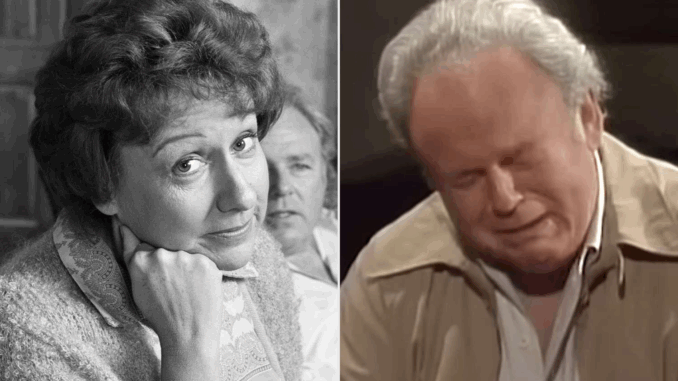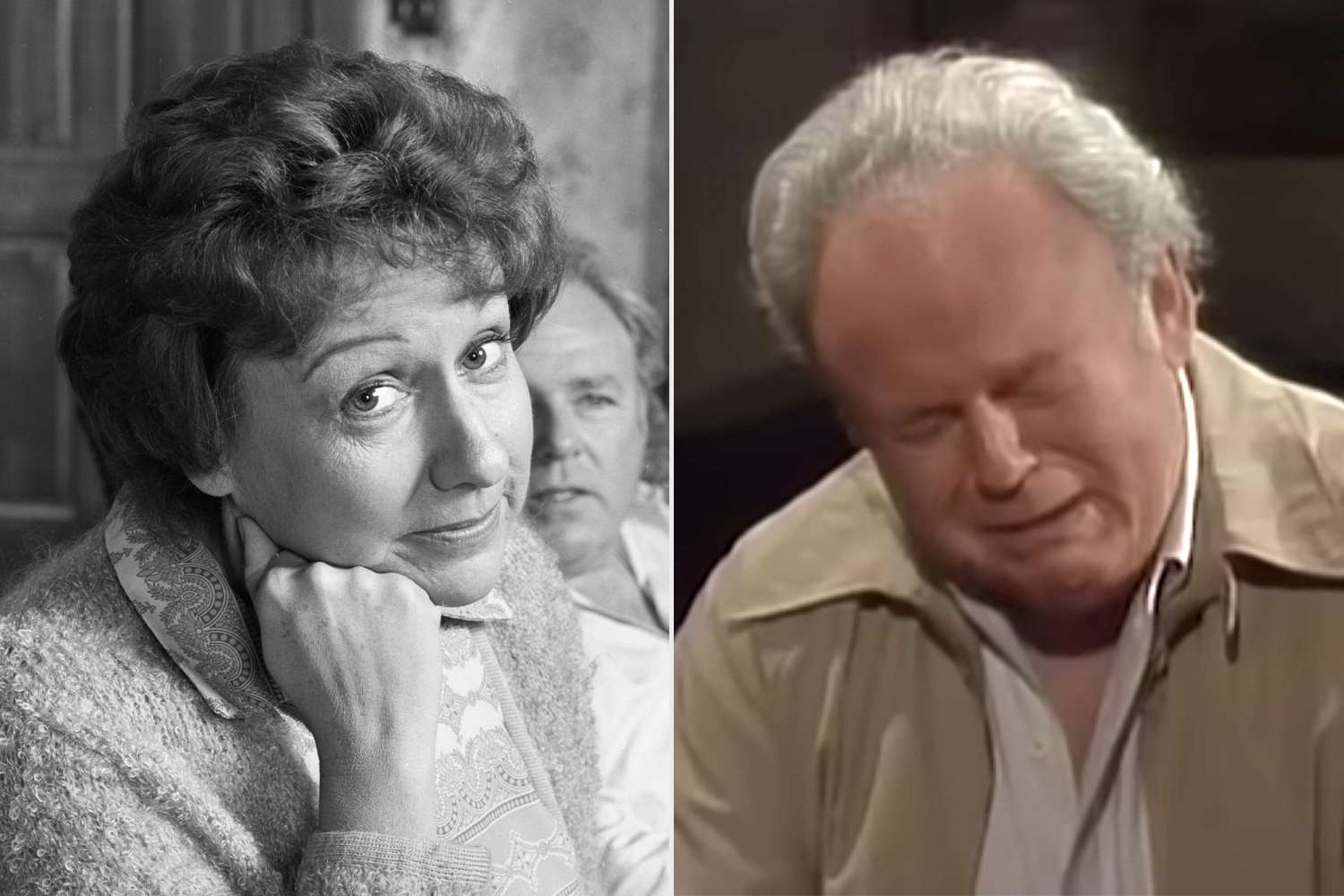
For decades, viewers cherished the marriage of Archie and Edith Bunker, the emotional core of All in the Family. But the couple’s story reached a devastating conclusion that left fans grieving long after the final credits rolled. In the sitcom’s original 1979 finale, viewers watched Archie (Carroll O’Connor) prepare for a St. Patrick’s Day celebration at his bar, Archie’s Place. He convinced his devoted wife, Edith (Jean Stapleton), to cook corned beef and cabbage, unaware she was suffering from phlebitis and had been instructed to stay off her feet. When Archie discovered the truth, he frantically called her doctor, only to be accused of forcing Edith to work while ill. In that painful moment, Archie realized just how deeply he cared for his wife and how terrified he was of hurting her. The series closed with a rare, heartfelt confession from Archie, who finally admitted to Edith how much she meant to him.
Offscreen, All in the Family was ending largely because creator Norman Lear and Jean Stapleton were ready to move on. CBS wrapped the series after nine seasons and launched a spinoff, Archie Bunker’s Place, centered on Archie’s bar. Stapleton returned for five episodes during the spinoff’s first season, enough to make fans believe Edith would remain a fixture. But behind the scenes, she had agreed only to guest appearances. Her character’s fate was revealed in a shocking two-part season 2 premiere, airing November 2, 1980, when viewers learned Edith Bunker had died offscreen. The decision echoed the British series Till Death Us Do Part and its spinoff, where the character based on Edith also passed away after the actress’s real-life death.
 Season 2 of Archie Bunker’s Place opens with Archie in deep denial. A month has passed since Edith’s fatal stroke, yet he cannot bring himself to accept it. He avoids an insurance representative, ignores Edith’s belongings, and tiptoes around the empty spaces she used to fill. The emotional climax comes when he returns to their bedroom, now stripped of Edith’s things, and notices a single pink slipper. Picking it up, he begins speaking to her, saying, “It wasn’t supposed to be like this, you know. I was supposed to be the first one to go.” Through tears, he adds, “You had no right to leave me that way, Edith, without giving me just one more chance to say ‘I love you.’” As Archie collapses into sobs, Stephanie, the young niece they had taken in, appears at the doorway. Archie notices her and tells her, “She was the one who was supposed to stay down here with you. Not me, ’cause I ain’t no good at none of this.”
Season 2 of Archie Bunker’s Place opens with Archie in deep denial. A month has passed since Edith’s fatal stroke, yet he cannot bring himself to accept it. He avoids an insurance representative, ignores Edith’s belongings, and tiptoes around the empty spaces she used to fill. The emotional climax comes when he returns to their bedroom, now stripped of Edith’s things, and notices a single pink slipper. Picking it up, he begins speaking to her, saying, “It wasn’t supposed to be like this, you know. I was supposed to be the first one to go.” Through tears, he adds, “You had no right to leave me that way, Edith, without giving me just one more chance to say ‘I love you.’” As Archie collapses into sobs, Stephanie, the young niece they had taken in, appears at the doorway. Archie notices her and tells her, “She was the one who was supposed to stay down here with you. Not me, ’cause I ain’t no good at none of this.”
In a 1981 interview with The Christian Science Monitor, Stapleton explained that the cast debated Edith’s fate extensively. Divorce would have been unthinkable, she said, because “the Bunkers would never divorce each other.” Sending Edith off on a long trip would leave the character’s presence hovering awkwardly over the show. The only honest choice was to let Edith die. Norman Lear had the hardest time accepting it. Stapleton recalled telling him, “Norman, she’s only fiction,” only to be met with a long, emotional silence. He eventually replied, “To me, she isn’t only fiction.” Ultimately, Edith’s death inspired something meaningful: CBS made a $500,000 donation to the National Organization for Women to create the Edith Bunker Memorial Fund, honoring both the character and the actress who brought her to life.
Stapleton later said that Edith’s departure helped audiences distinguish her from the character, noting, “Somehow, the public cannot separate me from the character. If she is gone, it helps me personally in their minds because they know I am somebody else now.” Still, she remained deeply grateful for the role, saying, “I wouldn’t trade one minute of it. It took me so far in so many ways. But an artist doesn’t paint the same canvas for his entire career.”
When Jean Stapleton died in 2013, Norman Lear penned a tribute in The Hollywood Reporter, reflecting on the continued impact of the Edith Bunker Memorial Fund. “Even in death, Edith and Jean had magic,” he wrote. The sentiment captured the enduring legacy of a character and an actress who shaped television history and touched the hearts of millions.
